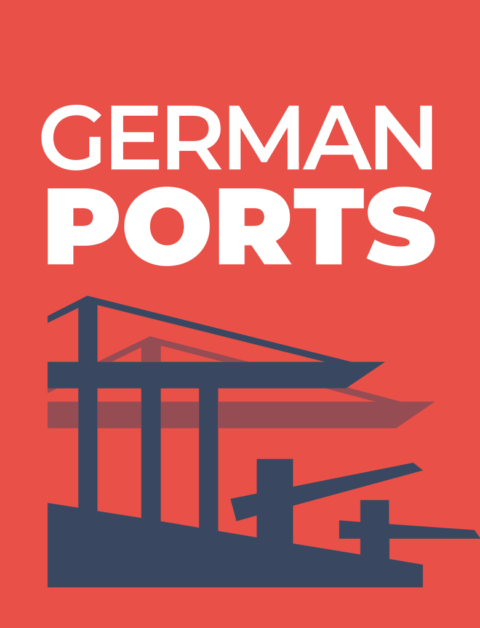How to make German harbours safer
27 May 2025 | The new digital exemption procedure for container imports via Hamburg, Bremerhaven and Wilhelmshaven is intended to curb drug smuggling. Dakosy project manager Sven Reimers explains the details in a guest article.
The threat situation is acute. We are seeing a "flood of cocaine" in Europe, the President of the Federal Criminal Police Office (BKA), Holger Münch, recently told Redaktionsnetzwerk Deutschland. One gateway is the European seaports. According to the Port Security Centre, cocaine finds in the port of Hamburg alone have increased fivefold in the past five years, totalling over 35 tonnes in 2023.
In view of this development, the threat and security risk to employees in the ports and their customers is growing. In Hamburg, Bremerhaven and Wilhelmshaven, more than 20 shipping companies, 12 container terminals and around 4,000 freight forwarders and logistics companies are affected. They all previously used the pin-based exemption procedure, whereby the shipping company authorised the forwarder with a reference to collect the container from the terminal. At the same time, the terminal was also informed of this exemption reference. Everyone in the chain of subcontractors knew the exemption reference for collecting a container.
The companies involved, customs and other authorities quickly agreed that they wanted to close this security gap holistically. The course for the joint project was set at the port security conference convened in Hamburg at the end of October 2023. The sentence formulated in the final declaration clearly indicated the direction: "The common goal is a secure procedure for the release of containers through encrypted, traceable and clearly limited data access."
International standards
Based on this requirement, the port community platforms of the seaports, DBH Logistics IT and Dakosy, have developed the new digital exemption procedure in cooperation with the port industry, which they will operate jointly on the German Ports platform from 1 October 2025. The seemingly simple message contains several innovations. The exemption process will be standardised for the German seaports of Hamburg, Bremerhaven and Wilhelmshaven, which are also located in three different federal states. A joint platform such as the one now offered by Dakosy and DBH has never existed in this form before.
In addition, it will be possible to digitalise the import process far beyond the required core process of release, thereby increasing the resilience of the entire import-side logistics chain. In future, the entire authorisation chain will be mapped in a closed system, from the release of the shipping company to the delivery of the container at the terminal. Slot booking, IDP applications for driver identification at the terminals and collection via all modes of transport in hinterland traffic are also integrated, and the new release process is designed in such a way that employees are protected at all times and those involved in transport are safeguarded. The basis is the "digital authorisation for collection". It replaces the previous pin-based authorisation reference. The new digital authorisation ensures that from the time the container arrives at the port by sea until it is picked up by the transport company, it is possible to trace who is authorised to dispose of the container at any time - including in the history. The container can only be released with the "digital right" by one authorised party to the next. In future, a digital comparison will always take place during the collection itself to determine whether the respective company is authorised. It is no longer possible to obtain a container without authorisation through pin code fraud.
German Ports' neutral IT platform plays a central role in terms of security, controlling access to sensitive data and preventing tampering. Further protection is provided by the high granularity of the collection rights to the goods. These are broken down to the level of the freight forwarder or transport company. On site, the digital right to collect goods can only be exercised by the drivers who are also assigned to the transport company.
Interaction with existing systems such as slot booking and IDP applications also ensures that containers are only released at the terminals if all digital "traffic lights" are green. If any information does not fit the picture, the container is not released.
Trial starts in four months
Freight forwarders and transport companies now have until 1 October 2025 to register for the new procedure, test it internally and prepare for mandatory participation.
Companies can connect their own IT systems via open interfaces, use their existing digital access via the port community systems from Dakosy (IMP) or DBH (BIT) or process the exemptions via the German Ports web platform. German Ports accompanies the companies through this preparatory phase with free information events.
Source: DVV Media Group GmbH / Sven Reimers is Project Manager for German Ports at Dakosy
